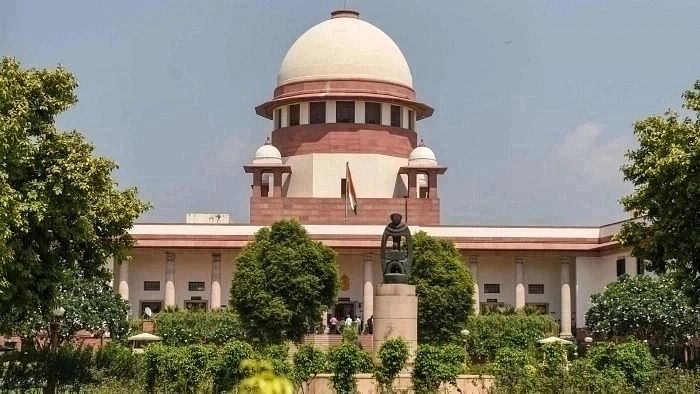
Supreme Court of India.
Credit: PTI File Photo
New Delhi: The Supreme Court on Tuesday by a unanimous view declined to strike down provisions of the Special Marriage Act (SMA), meant for registration of inter-faith couples.
The court rejected the plea by same-sex couples to replace the word used as man and woman in the law with "spouse" to grant recognition to marriage of same-sex couples.
Chief Justice of India D Y Chandrachud, though upheld the rights of civil union for queer couples, said this court cannot either strike down the constitutional validity of SMA or read words into it because of its institutional limitations.
"This court cannot read words into the provisions of the SMA and provisions of other allied laws...because that would amount to judicial legislation. The court in the exercise of the power of judicial review must steer clear of matters, particularly those impinging on policy, which fall in the legislative domain," he wrote in his judgement.
Justice Sanjay Kishan Kaul, in his separate judgement, said it would also not be prudent to suspend or strike down the SMA, given that it is a beneficial legislation and is regularly and routinely used by heterosexual partners desirous of getting married.
Even after declaring the SMA as violative of Article 14 of the Constitution, he wrote, "I recognise that there are multifarious interpretive difficulties in reading down the SMA to include marriages between non-heterosexual relationships... I also agree that the entitlements devolving from marriage are spread out across a proverbial ‘spider’s web’ of legislations and regulations."
He agreed with a contention of Solicitor General Tushar Mehta that tinkering with the scope of marriage under the SMA can have a cascading effect across other laws.
Justice S Ravindra Bhat, jointly with Justice Hema Kohli, wrote that the SMA sought to provide an avenue for those marriages that did not enjoy support in society, or did not have the benefit of custom to solemnise, it would be quite a stretch to say that this included same-sex marriages. "Therefore, the challenge to the constitutionality of the statute, must fail," he said.
Justice P S Narasimha, in his separate view, held constitutional challenge to the Special Marriage Act, 1954 and the Foreign Marriage Act,1969 must fail, for the reasons indicated in the opinion of Justice Bhat.
